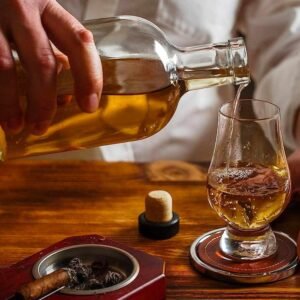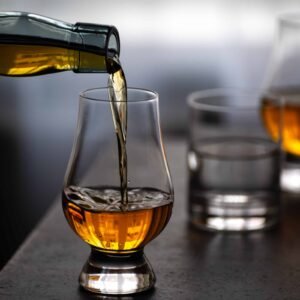India’s rising dominance in the global spirits industry is underscored by the latest Drinks International report, which reveals that one-third of the world’s 30 fastest-growing spirits brands are Indian. The country’s influence extends to whisky as well, with six of the top ten whisky brands hailing from India—a market where whisky accounts for nearly two-thirds of the overall spirits consumption.
The report, titled ‘The Millionaires’ Club,’ notes that India’s emergence as a leading spirits powerhouse coincides with its status as the world’s most populous country. Despite ongoing excise challenges that complicate trade, the potential for growth in the Indian market remains vast. “Cracking the Indian market offers almost limitless opportunities,” the report states.
Iconiq White Whisky from Allied Blenders and Distillers (ABD) leads the charge, topping the list with a remarkable 1500% growth and 1.6 million cases sold in 2023.
The success isn’t limited to whisky; Indian brands are also making waves in other categories.
The report highlights that six of the top ten rising spirits brands experienced double-digit growth. ABD’s upcoming Rs 1,500-crore public issue reflects the impact of robust domestic distribution networks and innovation. “Our focus on premiumisation, especially in brandy, has significantly boosted our volume growth,” said Ahmed Rahimtoola, chief marketing officer of an Indian distillery.
Despite a modest 1.9% growth, McDowell’s from United Spirits maintained its position as the world’s largest whisky brand with 31.4 million cases sold. Indian brands like Royal Stag, Imperial Blue, and Blenders Pride are among the top 30 globally, with thirteen of these brands in the whisky category.
Looking ahead, India’s spirits market is expected to grow significantly as 100 million new consumers enter the legal drinking age over the next five years.




Global companies, including Diageo and Pernod Ricard, are prioritizing India as a key market. Recent alcohol bans being lifted in Gujarat and Manipur further bolster domestic growth prospects.
While much of the current sales are domestic, major players like Radico Khaitan, Pernod Ricard, and Diageo are also investing heavily in premium single malts for export. This shift is likely to enhance global marketing and consumption of Indian whisky but may also influence the premiumisation of domestic whisky, potentially impacting market share among top producers.











